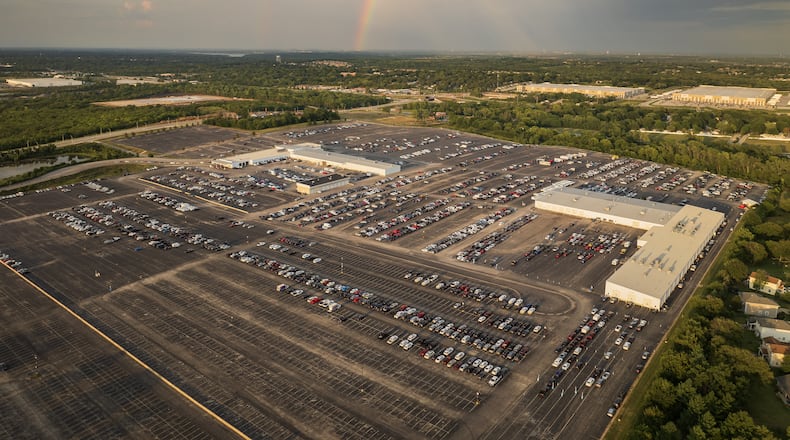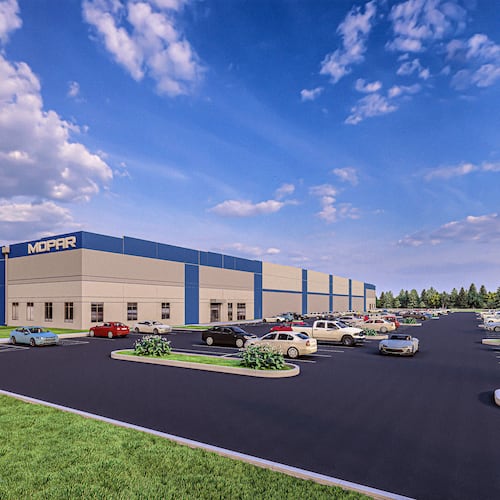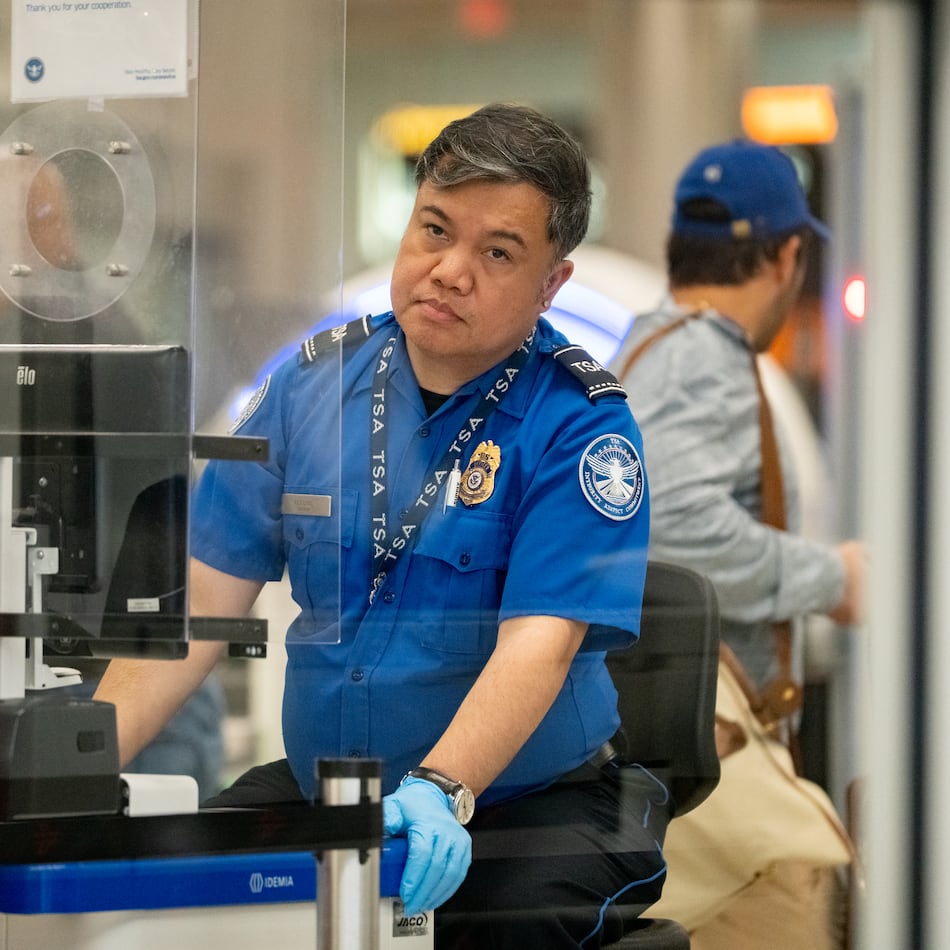Carvana’s road trip from scrappy startup to the Fortune 500 list began at Atlanta’s High Museum of Art, where the online used car company sold its first vehicle in 2013.
Since then, millions of cars have changed hands on the Arizona-based company’s platform.
On Wednesday, Carvana announced a new expansion in the Atlanta area, retooling a wholesale vehicle lot it purchased in 2022 in Fairburn into what it calls a “megasite,” where it plans to add vehicle reconditioning services and hire 200 people.
The expansion will make what’s known as the Adesa auction facility Carvana’s fifth megasite across the country.
“That speaks to our dedication to the Atlanta market, the size of the Atlanta market and the opportunity that we see there,” said Hayley Pollack, Carvana’s senior communications manager.
Credit: JOHN SPINK / AJC
Credit: JOHN SPINK / AJC
Located along Oakley Industrial Boulevard, the roughly 100-acre Adesa site is expected to finish its megasite conversion by early February. With more used cars being repaired and stored in metro Atlanta, it will increase the number of same-day delivery options for Carvana customers in the region.
Carvana doesn’t disclose how many employees it has in each state, but the 200-person hiring rush combined with its other Georgia centers should rank the Peach State among its largest employee clusters.
“As our first market, Atlanta holds a significant place in Carvana’s history,” said Brian Boyd, Carvana’s senior vice president of inventory. “We look forward to providing an even better experience to all of our customers in the Atlanta community with this integration.”
A ‘used car factory’
Georgia is a big state for the automotive sector, both new and used. There are the Kia and Hyundai Motor Group factories, as well as a constellation of automotive parts suppliers, dealers and other automotive services companies, including automotive auction company Manheim and online marketplace Autotrader. Manheim and Autotrader are part of Cox Automotive, which is owned by Cox Enterprises, which is also the parent of The Atlanta Journal-Constitution.
In Barrow County near Winder, Carvana operates an inspection and reconditioning center that acts as a mandatory pit stop for all cars positioned for retail sale. An AJC reporter recently toured the facility, watching dozens of vehicles go through what employees describe as a “used car factory.”
Credit: Courtesy Carvana
Credit: Courtesy Carvana
Similar to the assembly lines that brought these vehicles to life, cars ranging from luxury brands to electric vehicles are ushered through a series of maintenance checks and inspections. Carvana won’t purchase cars for retail sale that need heavy bodywork, but it will handle minor dents and other cosmetic maintenance.
Credit: Courtesy Carvana
Credit: Courtesy Carvana
About 80% of the vehicles Carvana sells are bought directly from a customer, Pollack said. As of September, Carvana had purchased more than 2 million cars from customers and, in kind, had sold more than 2 million cars on its platform.
The Winder facility typically inspects about 130 vehicles per day and is split between two sites, one that handles the inspection and maintenance and the other that stores vehicles for sale and delivery. Carvana operates 17 inspection and reconditioning centers and has access to 56 Adesa locations since acquiring the company in 2022.
The future megasite in Fairburn will have nearly 12,000 parking spots, roughly double the capacity of Winder. Pollack said it’ll be more efficient since everything will take place at one site.
“An inspection and reconditioning center that we used to build from the ground up would take one to three years and would require a lot of (capital expenses),” Pollack said. “These (Adesa) sites can get up and running in 90 days.”
Navigating speed bumps
Carvana’s corporate journey — while fast — has been anything but smooth.
The company’s stock price rapidly accelerated from 2020 to mid-2021 as the COVID-19 pandemic hampered new car manufacturing, increasing the value of used vehicles and fueling Carvana’s share price to peak at nearly $361. In 2021, it debuted on the Fortune Magazine’s list of the 500 largest American companies by revenue, becoming one of the youngest companies to reach that mark.
Carvana’s stock price soon tumbled.
It lost about 99% of its value, falling to about $4 per share by the end of 2022 as the company grappled with debt restructuring and rising interest rates. The financial struggles, alongside the pandemic’s impact on office utilization, prompted Carvana to back out of a deal to sublease the entire 570,000-square-foot Park Center 1 tower in Dunwoody.
The company posted its first annual profit in 2023 and its stock price has rebounded, eclipsing $265 per share last fall. The share price closed Tuesday at about $198.
Carvana’s third quarter topped Wall Street expectations with $3.7 billion in revenue, a 32% year-over-year increase.
Carvana’s megasite conversion near Atlanta will continue the company’s momentum, Pollack said.
“Overall, it’ll be faster and more efficient all around,” she said.
About the Author
Keep Reading
The Latest
Featured






